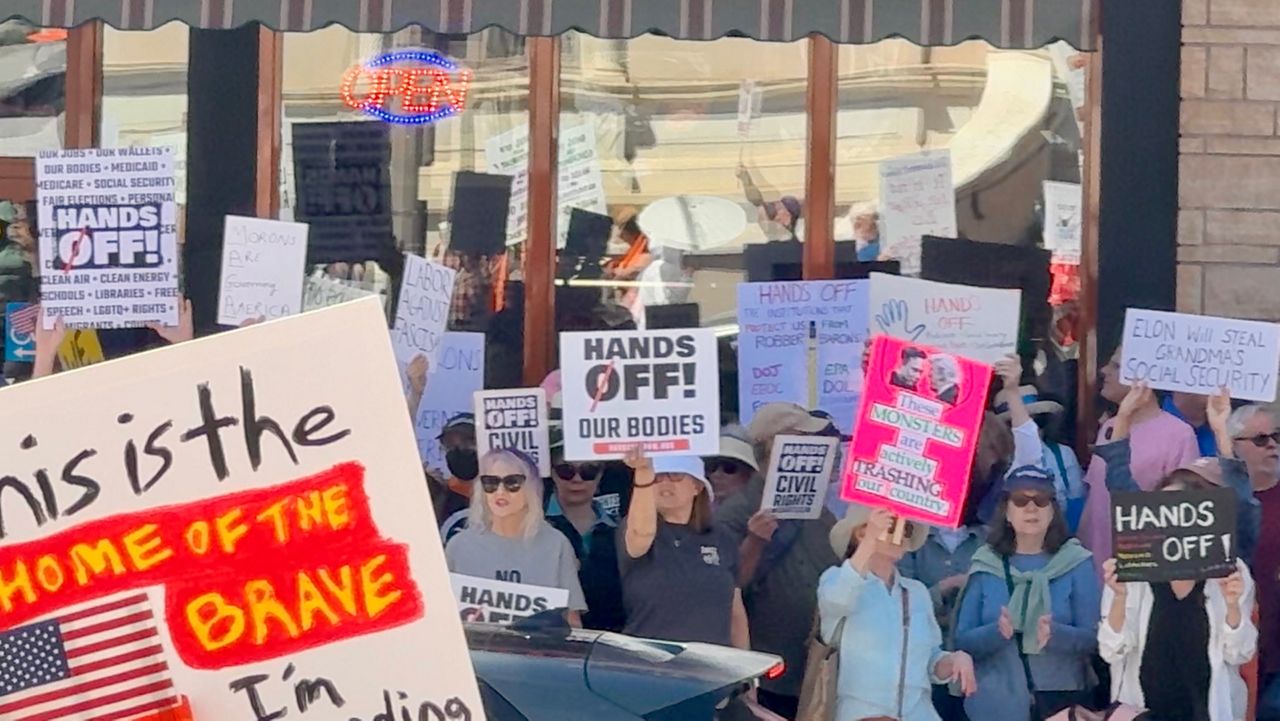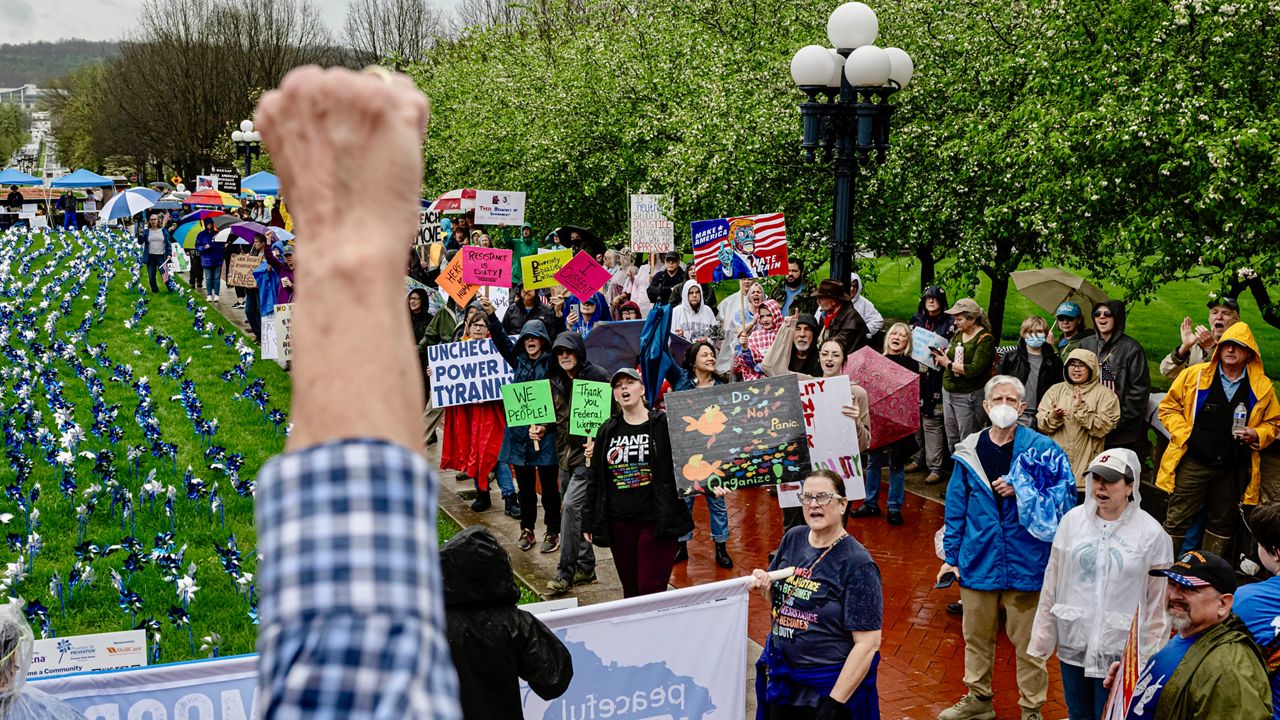Thirty-three-year-old Rep. Sara Jacobs of California is one of the youngest members of the 117th Congress. And her first week on the job was anything but ordinary.
The chaos of Jan. 6 last year took place just three days after her swearing in. She was seated in the House gallery that day for the ceremonial counting of the 2020 electoral votes.
“The speaker actually picked certain people to go to the gallery for different times. And I was really honored that she chose me to be in the first group of people to watch the start of the proceedings,” Jacobs recalled in a sit-down interview with Spectrum News.
But things quickly took a turn after rioters breached the Capitol.
At the time, Jacobs and some of her colleagues were trapped in the gallery as chaos ensued below on the House floor.
“They evacuated the floor. But because members don’t normally sit in the gallery, they didn’t really have a plan to evacuate us. So eventually, we sort of climbed over railings and under chairs to the other side of the gallery and were able to get out and get to a safe room,” she said.
While they were waiting to be evacuated, Jacobs was told by Capitol Police to put on an escape hood to protect her from pepper spray. She still keeps the hood in one of her office drawers.
“[You] stick your head in here. And then it has this like crazy buzzing sound… It’s very claustrophobic,” she remembered.
Jacobs worked at the state department during the Obama administration focusing on conflict prevention and countering violent extremism. Even with that background, she said she was not prepared for what happened on Jan. 6.
“I remember sitting, hiding under the chair, feeling so bad for my parents, because they thought after I was done working in conflict all over the world that they could sleep a little easier only for the most dangerous place I’ve ever been to be the United States Capitol. And it really was the closest I’ve ever come to really feeling like I might lose my life,” she said.
Jacobs entered Congress after winning an open seat in San Diego, and now 18 months after the riot, she’s seeking re-election. But Jacobs said she is still processing the trauma of that day.
She sat in on the first Jan. 6 hearing with several other House members who were trapped in the House gallery with her. Jacobs said she has not watched the other hearings, but will likely attend the last hearing.
“The first hearing that I attended was actually the first time I’ve seen a lot of footage of Jan. 6, since the attack. And so it was really difficult for me, it was very emotional. It was very emotional,” she explained. “I don’t need to subject myself to that every day. I do think it’s important that we’re bearing witness. I think it’s important that the American people see it. I’ll probably go to the last hearing. But just for me, on the day to day to get through the day, I don’t watch all the hearings.”
She added that leaning on some of her House colleagues and seeking professional help has also helped her process Jan. 6.
“I think a lot of people think of Congress and only see a sort of the sniping and the fighting and the competition. [But] there’s this real genuine sense of of camaraderie and community among the members. And so that’s been really nice, and you know, we’ve done some group therapy sessions. I am lucky that I already had a relationship with a therapist that I’ve been seeing about this, you know how to think about and, and deal with the trauma that I experienced that day.”
With the public hearings set to conclude as soon as next week, Jacobs said she is hoping the committee’s work will lead to accountability for everyone responsible for the riot.
“Based on both my experience that day, and my experience working on conflict and on political violence in other countries, I know that accountability is one of the most important things we can do. And we know from other countries, if you don’t have really strong accountability the first time an incident of political violence like this happens, you’re much more likely to get future instances. And we’re already seeing folks plan that across the country. And so, to me, having accountability for anyone who committed, incited or supported encouraged those acts of violence will be incredibly important.”











